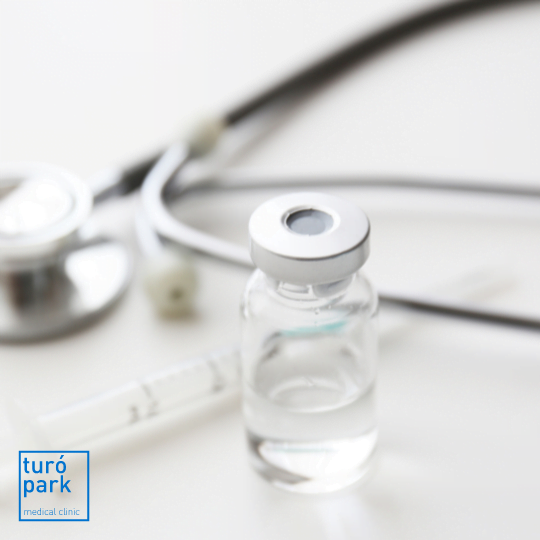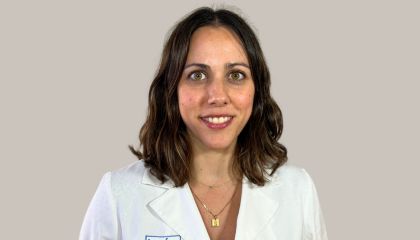Are you looking for an infectious diseases doctor in Barcelona?
Today, infectious diseases still kill many people in France and throughout the world. Vaccination can prevent the spread of some of these diseases, but proper care is essential to treat patients and reduce transmission.
If you are suffering from an infectious disease or have any doubts about your symptoms, do not hesitate to make an appointment with our infectious disease doctor for an in-depth examination and assessment.
What is infectiology?
Infectiology is a clinical medical discipline specialising in the management of infectious and tropical diseases in their individual and collective dimensions. This speciality includes the epidemiology (study of the frequency, mode of transmission, risk factors) of infectious diseases, the study of the symptoms and evolution of infections, diagnostic methods, curative (antibiotics) and preventive (vaccines) treatments and hygiene.
The infectious diseases physician plays a major role in the recognition, treatment, but also the individual and collective prevention of the spread of transmissible diseases. They know how to diagnose, choose the relevant complementary explorations, establish the indication or non-indication of an anti-infectious treatment, choose anti-infectives according to multiple criteria, and monitor the effectiveness and tolerance of treatments.
As infections can affect all organs, the infectious disease specialist works closely with doctors in other specialties.
Speed up your treatment!
To make an appointment or speak with one of our team members, please contact us using the options below.

When should you consult an infectious diseases physician?
An infectiologist is a doctor who treats patients with bacterial, viral, fungal or parasitic infections, particularly the most complex and difficult to treat, and emerging infectious diseases.
It is advisable to consult a specialist in infectious diseases in case of :
- Conventional infectious diseases (urinary, digestive, pulmonary, skin, osteoarticular infections, inoculation diseases...)
- Tropical diseases: malaria, travel-related diseases, Chinkungunya, dengue, etc.
- Infections associated with care (nosocomial infections) and infections on equipment
- HIV infections (with therapeutic education)
- Hepatitis B and C
- Sexually transmitted infections.
What are the most common infectious diseases?
The list of infectious diseases is very long, but the most common are
Influenza is an infectious disease caused by an influenza virus, an enveloped RNA virus of the Orthomyxoviridae family, which mainly affects the upper respiratory tract (nose, throat, bronchi), more rarely the lungs.
The main symptoms of influenza are sudden fever, sore throat, extreme fatigue, muscle aches and headaches.
Lyme disease is an infection transmitted by ticks and caused by the spirochete Borrelia spp. The infection is often symptomless but can in some cases lead to a sometimes disabling disease (lasting joint pain, partial paralysis of the limbs, etc.).
Malaria is a potentially fatal infectious disease caused by several species of parasites belonging to the genus Plasmodium. The disease is primarily transmitted to humans through the bite of a mosquito, the female Anopheles, which is infected after biting an infected person.
Common manifestations of malaria include fever and chills, anaemia, jaundice, splenomegaly (abnormal enlargement of the spleen), hepatomegaly (enlargement of the liver).
The chikungunya virus is an arbovirus (virus transmitted by arthropods) whose vectors are female mosquitoes of the genus Aedes. The disease may go unnoticed or may manifest itself on average 4 to 7 days after the infecting bite, with the sudden onset of a high fever (above 38.5°C) associated with headaches and severe muscle and joint pain affecting the extremities.
Dengue or "tropical flu" is a disease transmitted by the bite of a mosquito of the genus Aedes. It causes fever and severe arthralgia (joint pain). Other symptoms include myalgia, headache, nausea, fatigue and rash. Joint pain is often debilitating and of variable duration.
Your health, our priority.
Our infectious diseases doctor welcomes you for your clinical infectious diseases consultations and examinations.

How does an infectious disease consultation take place?
The consultation with the infectious disease specialist begins with a discussion between the patient and the doctor, so that the latter knows the patient's medical history, symptoms and the circumstances of the onset of the illness.
The infectious disease specialist then methodically examines the patient for clinical signs that could point to an infectious disease. The infectious disease specialist will prescribe tests (blood cultures, serological tests, Gram stain, etc.) to confirm and support the diagnosis.
Treatment will depend directly on the infectious disease and will generally be based on multidisciplinary management, sometimes with the need for an isolation lock.
Our infectious diseases doctor

Our answers to the most frequently asked questions about infectious diseases
How to prevent the spread of infectious diseases?
How are infections diagnosed?
- Staining and microscopic examination
- Cultivation
- Antibody testing
- Detection of microorganism antigens
- Search for the genetic material (such as DNA or RNA) of the micro-organism